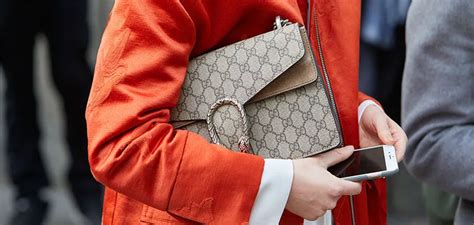gucci runways millenials campaign marketing | gucci advertising strategy gucci runways millenials campaign marketing In seeking and attracting the millennial consumer’s attention and dollars, we can accredit Gucci’s success to its well-executed advertising and marketing strategies, which had gone concurrently with a digital rollout. The LN (Lunette Noir) has a black dial paired with a black ceramic bezel, while the LV (Lunette Verte) has a black dial and a green ceramic bezel. and the ref. 126610LN has a retail price of $10,250, while the ref. 126610LV has an official retail price of $10,800.
0 · gucci watch marketing strategy
1 · gucci social media marketing
2 · gucci marketing strategy 2021
3 · gucci marketing strategy 1980s
4 · gucci marketing campaign
5 · gucci fashion marketing strategy
6 · gucci company marketing strategy
7 · gucci advertising strategy
$5,991.41
gucci watch marketing strategy
In seeking and attracting the millennial consumer’s attention and dollars, we can accredit Gucci’s success to its well-executed advertising and marketing strategies, which had gone concurrently with a digital rollout. Key Takeaways: Gucci’s personalized and digital-first marketing strategies have successfully targeted and engaged millennial consumers. Gucci’s seamless user experience . Gucci is unafraid to push boundaries and challenge conventions, a trait that has set its marketing campaigns apart. One of the most notable examples is the “Gucci Bloom” campaign , which celebrated diversity and .
How the dream team of CEO Marco Bizzarri and creative director Alessandro Michele are reinventing luxury brand Gucci for the next generation of customers, the millennials.
Gucci understands the importance of understanding different generational behaviors and preferences to create targeted marketing campaigns. By catering to the specific .
GUCCI leverages various marketing channels, including print and digital advertising, celebrity endorsements and influencer marketing, social media platforms (Instagram, . According to Francois-Henri Pinault, CEO of Kering, Gucci's parent company, millennials and Gen Z account for nearly 50% of Gucci’s total sales. According to Fast . This article explores the key elements of Gucci’s marketing strategy, including celebrity endorsements, collaborations with influencers, digital marketing campaigns, and .
A key factor in Gucci’s brand strategy is marketing an aspirational lifestyle that consumers want to embody. Gucci portrays a jet-setting lifestyle of glamour, sophistication, and sensuality through advertising and messaging.
In seeking and attracting the millennial consumer’s attention and dollars, we can accredit Gucci’s success to its well-executed advertising and marketing strategies, which had gone concurrently with a digital rollout. Key Takeaways: Gucci’s personalized and digital-first marketing strategies have successfully targeted and engaged millennial consumers. Gucci’s seamless user experience across various touchpoints has contributed to its strong brand awareness.
Gucci is unafraid to push boundaries and challenge conventions, a trait that has set its marketing campaigns apart. One of the most notable examples is the “Gucci Bloom” campaign , which celebrated diversity and individuality. Let's find out how the heritage Italian brand, Gucci, employed four marketing strategies to eventually become millenials' favorite luxury brand. How the dream team of CEO Marco Bizzarri and creative director Alessandro Michele are reinventing luxury brand Gucci for the next generation of customers, the millennials. Gucci understands the importance of understanding different generational behaviors and preferences to create targeted marketing campaigns. By catering to the specific needs and desires of the millennial market, Gucci enhances customer engagement, increases brand loyalty, and drives sales.
GUCCI leverages various marketing channels, including print and digital advertising, celebrity endorsements and influencer marketing, social media platforms (Instagram, Facebook, Twitter, TikTok), fashion events and runway shows, . According to Francois-Henri Pinault, CEO of Kering, Gucci's parent company, millennials and Gen Z account for nearly 50% of Gucci’s total sales. According to Fast Company, Gucci CEO Marco.

gucci social media marketing
This article explores the key elements of Gucci’s marketing strategy, including celebrity endorsements, collaborations with influencers, digital marketing campaigns, and experiential marketing. Additionally, it examines Gucci’s global expansion efforts, sustainability initiatives, and their impact on the brand’s success. A key factor in Gucci’s brand strategy is marketing an aspirational lifestyle that consumers want to embody. Gucci portrays a jet-setting lifestyle of glamour, sophistication, and sensuality through advertising and messaging. In seeking and attracting the millennial consumer’s attention and dollars, we can accredit Gucci’s success to its well-executed advertising and marketing strategies, which had gone concurrently with a digital rollout. Key Takeaways: Gucci’s personalized and digital-first marketing strategies have successfully targeted and engaged millennial consumers. Gucci’s seamless user experience across various touchpoints has contributed to its strong brand awareness.
Gucci is unafraid to push boundaries and challenge conventions, a trait that has set its marketing campaigns apart. One of the most notable examples is the “Gucci Bloom” campaign , which celebrated diversity and individuality.
Let's find out how the heritage Italian brand, Gucci, employed four marketing strategies to eventually become millenials' favorite luxury brand. How the dream team of CEO Marco Bizzarri and creative director Alessandro Michele are reinventing luxury brand Gucci for the next generation of customers, the millennials. Gucci understands the importance of understanding different generational behaviors and preferences to create targeted marketing campaigns. By catering to the specific needs and desires of the millennial market, Gucci enhances customer engagement, increases brand loyalty, and drives sales. GUCCI leverages various marketing channels, including print and digital advertising, celebrity endorsements and influencer marketing, social media platforms (Instagram, Facebook, Twitter, TikTok), fashion events and runway shows, .
According to Francois-Henri Pinault, CEO of Kering, Gucci's parent company, millennials and Gen Z account for nearly 50% of Gucci’s total sales. According to Fast Company, Gucci CEO Marco. This article explores the key elements of Gucci’s marketing strategy, including celebrity endorsements, collaborations with influencers, digital marketing campaigns, and experiential marketing. Additionally, it examines Gucci’s global expansion efforts, sustainability initiatives, and their impact on the brand’s success.

Historical Events for the Year 1978. 1st January » Air India Flight 855 Boeing 747 crashes into the sea, due to instrument failure and pilot disorientation, off the coast of Mumbai .
gucci runways millenials campaign marketing|gucci advertising strategy

























